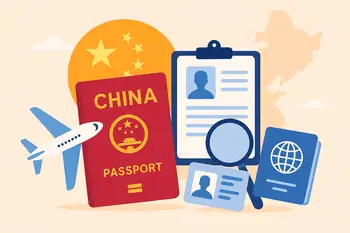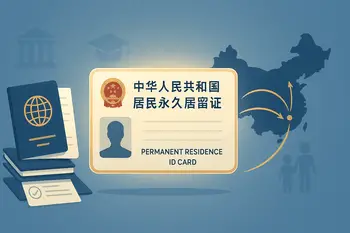
China offers a vibrant and diverse range of entertainment and leisure activities, catering to both residents and travelers.
Whether you’re exploring bustling cities or serene rural areas, understanding the costs associated with these activities can help you plan and budget effectively.
This guide provides detailed insights into various entertainment options, their costs, and tips to make the most of your experience.
1. Cinemas and Movie Tickets
China’s cinema industry is one of the largest globally, showcasing a mix of local blockbusters and international films.
Major cities like Beijing, Shanghai, and Guangzhou feature state-of-the-art cinemas.
- Average ticket prices: Movie tickets typically range from ¥40 to ¥120 depending on the city, cinema chain, and format (e.g., 2D, 3D, IMAX). For example, IMAX screenings in Shanghai may cost closer to the higher end of this range.
- Discounts and promotions: Many cinemas offer discounts for students and promotional deals on specific days, such as “Movie Mondays.” Apps like Maoyan and Taopiaopiao are great for finding deals and booking tickets.
- VIP options: Luxurious cinema experiences, including reclining seats and in-theater dining, can cost upwards of ¥150 per ticket.
Tip: Use apps like Maoyan to compare prices and book tickets in advance for discounts.
2. Dining and Nightlife
China’s culinary scene and nightlife are integral to its entertainment culture, offering options for every budget.
- Fine dining: High-end restaurants in cities like Shanghai or Beijing charge ¥300 to ¥1,000 per person, depending on the cuisine and location. Michelin-starred restaurants, such as Ultraviolet by Paul Pairet, are on the higher end.
- Street food: For budget-friendly options, street food like dumplings, noodles, and barbecue skewers costs ¥10 to ¥50 per meal. Popular spots include Wangfujing in Beijing and the Muslim Quarter in Xi’an.
- Bars and clubs: Drinks at popular nightlife spots in cities like Shenzhen and Chengdu cost ¥50 to ¥100, while upscale clubs may charge entrance fees ranging from ¥100 to ¥500.
Tip: Apps like Dianping can help you find highly rated restaurants and bars in your area.
3. Theme Parks and Amusement Centers
China is home to world-class theme parks, including Shanghai Disneyland and Chimelong Ocean Kingdom.
- Ticket prices: Entry fees range from ¥200 to ¥500 per person. Seasonal passes or family packages often provide discounts.
- Additional costs: On-site dining, souvenirs, and express pass options can significantly increase expenses. For example, express passes at Shanghai Disneyland can cost an additional ¥100 to ¥300.
Tip: Check the official websites of parks like Shanghai Disneyland for promotions and ticket bundles.
4. Performing Arts and Cultural Shows
China’s rich cultural heritage is showcased through performing arts like Peking opera, acrobatics, and traditional dance.
- Ticket prices for cultural shows: Expect to pay between ¥150 and ¥500, depending on the venue and performance. For example, the Beijing Opera at the Liyuan Theatre is a popular choice.
- Modern performances: Concerts and international theater productions in cities like Beijing often cost ¥300 to ¥1,000 per ticket.
Tip: Websites like 247Tickets and Damai are excellent for booking tickets to cultural and modern performances.
5. Fitness and Recreation
Staying active is increasingly popular in China, with numerous options for fitness and recreational activities.
- Gym memberships: Monthly subscriptions in urban areas range from ¥200 to ¥800, with upscale gyms like Pure Fitness charging more.
- Yoga and fitness classes: Group classes typically cost ¥80 to ¥150 per session. Apps like Keep can help you find classes nearby.
- Outdoor activities: Parks often have free entry, while activities like boating or cycling rentals cost around ¥30 to ¥100 per hour.
Tip: Many parks in China have free fitness equipment, making outdoor exercise a cost-effective option.
6. Gaming and Internet Cafes
Gaming culture thrives in China, with internet cafes and gaming lounges being popular among locals.
- Hourly rates: Internet cafes charge ¥5 to ¥15 per hour, depending on the setup and location.
- Gaming centers: VR gaming and eSports lounges offer immersive experiences at ¥50 to ¥150 per session.
Tip: Look for high-end gaming lounges in cities like Chengdu or Hangzhou for a premium experience.
7. Museums and Art Galleries
China’s museums and galleries provide both educational and leisure experiences.
- Entry fees: Many museums charge between ¥20 and ¥80, while some offer free entry on select days. For example, the National Museum of China in Beijing is free but requires prior registration.
- Special exhibitions: High-profile exhibitions may cost ¥100 to ¥300 per person.
Tip: Check museum websites or platforms like Ctrip for ticket availability and special events.
8. Sports and Outdoor Adventures
For adventure enthusiasts, China offers a plethora of sports and outdoor activities.
- Skiing: Resorts like those in Harbin charge ¥300 to ¥800 for a day pass. Equipment rentals are often extra.
- Hiking and trekking: Popular trails, such as the Great Wall or Yellow Mountains, typically have entry fees ranging from ¥40 to ¥200.
- Water sports: Activities like kayaking and paddleboarding cost between ¥100 and ¥300 per hour.
Tip: Join local hiking or outdoor groups on platforms like WeChat to find guided tours and group discounts.
9. Subscription Services
Digital entertainment is widely used in China, with streaming platforms and gaming subscriptions being particularly popular.
- Streaming services: Platforms like iQIYI, Tencent Video, and Youku charge ¥20 to ¥30 per month.
- Gaming subscriptions: Online gaming memberships range from ¥30 to ¥100 monthly, depending on the platform and perks offered.
Tip: Many platforms offer free trials or discounts for annual subscriptions.
10. Seasonal and Regional Variations
Costs for entertainment and leisure activities can vary significantly based on the region and season.
- Peak tourist seasons: Cities like Hangzhou and Lijiang see a surge in prices during holidays like Chinese New Year or Golden Week.
- Rural areas: Entertainment options in rural areas are often more affordable compared to urban centers.
Tip: Plan your trips during off-peak seasons to save on costs and avoid crowds.
Final Thoughts
China offers a wealth of entertainment and leisure options for every budget.
By planning ahead, using local apps, and taking advantage of discounts, you can enjoy these experiences without overspending.
Whether you’re exploring the vibrant nightlife of Shanghai, hiking the Great Wall, or immersing yourself in cultural performances, there’s something for everyone.
For more tips and resources, check out platforms like Trip.com, Dianping, and Ctrip.


